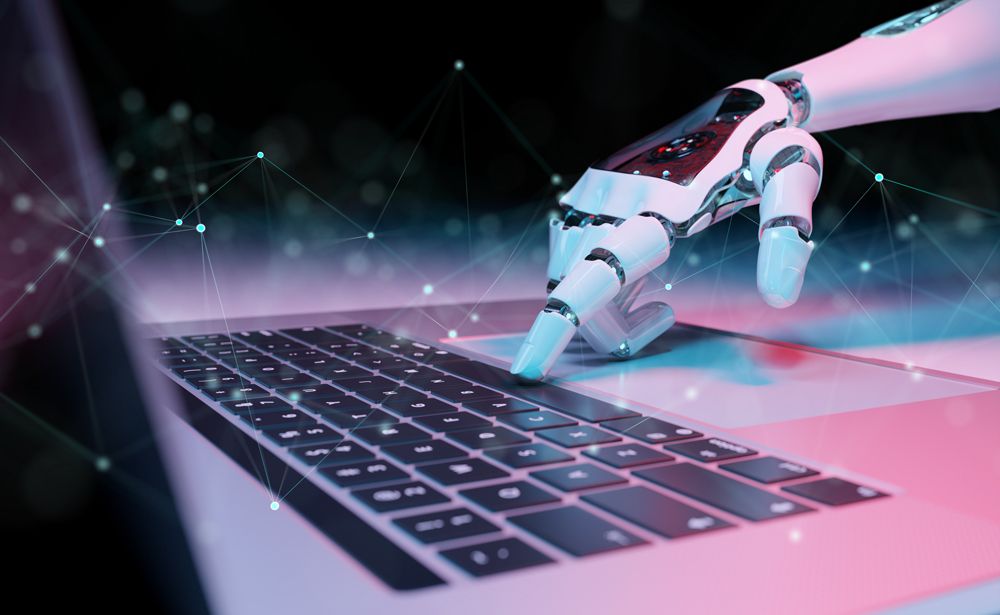Artificial intelligence has crept its way into arts and entertainment, leaving many creatives uneasy about their place in a world increasingly powered by machines. Composers, musicians, artists and writers are beginning to realize that their once-exclusive domain might not be so exclusive anymore.
Even acclaimed filmmaker Steven Spielberg warned of the human soul in creativity being taken away by robot-made art. “And to lose that because books and movies, and music is being written by machines that we created, and now we’re letting them run with? That terrifies me,” he
Stephen Colbert.Few of us ever envisioned that ChatGPT would be generating original poetry, coding or movie scenes. In self-preservation mode, optimism feels difficult, but maybe it shouldn’t be.
If creatives want to embrace an AI future without the fear of being replaced by technology, we need to remember who’s in control and make these five key mindset shifts:
Accept AI
It’s here. It’s evolving. And it’s not going away. Take a look at the way technology, art and professions have evolved over the years—with the most stubborn to adapt falling behind. Is anyone still making a living in the VHS business?
Arm yourself with information
Learn, experiment and keep ahead of the AI curve. If you stay on top of AI trends, you’ll be far better positioned to deal with and benefit from them in your work.
What is the technology doing? What is it capable of? Take a proactive approach to learning about production tools and plugins that are available and being developed. See how you can use them to your advantage and improve your workflow rather than fight against it. Imagine the ways that you could use it, not even necessarily to replace your own choices, but to do things that you would never think of.
See yourself as an AI collaborator
Use the technology as a jumping-off point that helps provide the creative spark or idea for where to go with your work, whether it’s music, art, writing or anything else. Then, take what you like and leave the rest. You’re not giving up the reins; you’re merely collaborating with AI to add more reference material to your toolbox that will free you up for the real creative stuff.
And isn’t that how inspiration works, anyway? It may not happen at AI’s lightning speed, but reference material has long been a part of the creative process. There's no such thing as a thought that just comes out of nowhere. Everything is derivative from something if you go deep enough.
Realize that AI is only as good as what you put into it
So often, creatives who fear being replaced by AI argue that it will allow anyone to master their craft. But that’s really not the case; you could give loads of different people the exact same tools, and they're not all going to come out with awesome content. AI assist or not, they still need to know what makes creative awesome and how to get there.
With AI (whether Midjourney, ChatGPT or Bing), the results you get are entirely based on how you apply, feed, train and manage these programs using your expertise.
Get empowered by your humanity
Revel in the knowledge that AI will never replace a human’s discerning personal taste, gut calls or—perhaps even most important—ability to form relationships with audiences.
People will always want stuff made by people. That's why we watch TV, read books, listen to music. We want to feel connected to the world, its creativity and stories through the real people behind these arts. In a world where suddenly everyone's being fed AI-generated movies with AI-generated music, who is going to care?
That won’t work because it removes the reason to be invested in the first place—that ability to relate in a human way to the people behind the magic. With music, people will start to like an artist or band and want to know more about them. They’ll hear a song, follow you on social, go to your gigs. No one feels that way about a computer.
People always want to know who made great art and what inspired them. This very human thing is also what draws us to other like-minded people that then feel a connection to each other.
The potential for AI to replace human creativity is a real fear, but it's not all doom and gloom. Embracing an AI future means accepting its inevitability and arming ourselves with knowledge to benefit from it. With a proactive approach and the right mindset shifts, we can leverage AI to improve our workflows and spark new creative ideas, ultimately driving the evolution of the arts and entertainment industry.
This article was first published by Ad Age. See how it originally appeared .


